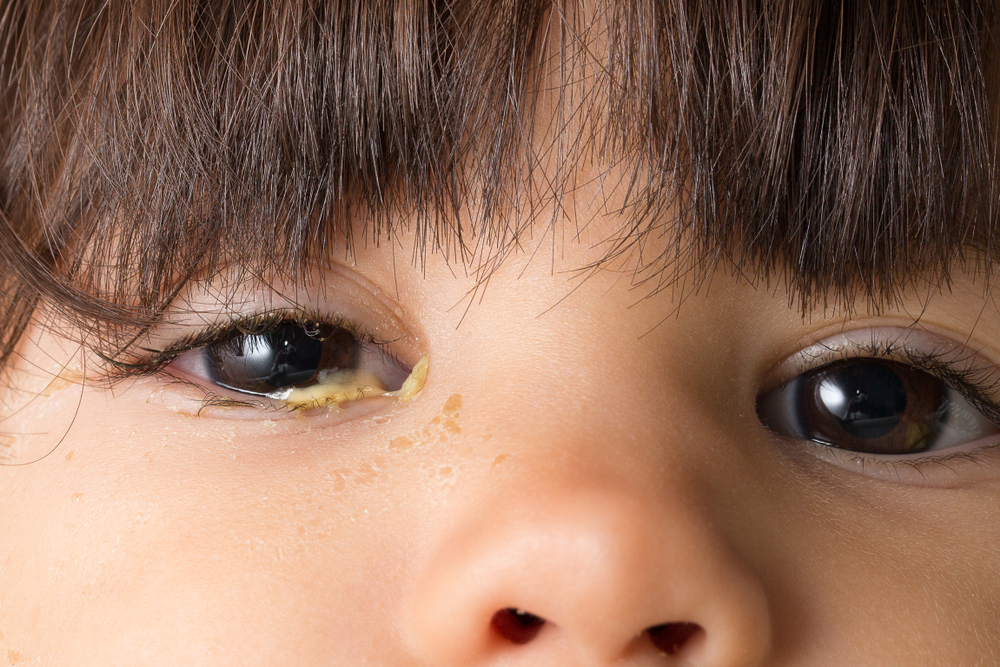
Toddlers are naturally curious and active, which can increase their risk of developing eye infections. These infections can range from mild irritation to more severe conditions that require prompt treatment. By understanding the causes, signs, and symptoms of toddler eye infections, you can be better equipped to provide the necessary care and support for your little one.
Common Causes of Eye Infections
There are several common causes of eye infections in toddlers, including:
- Viral Conjunctivitis: Also known as "pink eye," this highly contagious infection is caused by a virus and can spread quickly in childcare settings.
- Bacterial Conjunctivitis: This type of eye infection is caused by bacteria and can result in thick, yellow or green discharge from the eye.
- Allergic Conjunctivitis: Environmental allergens, such as pollen or pet dander, can trigger an allergic reaction in the eyes, leading to redness, itching, and watery discharge.
Understanding the potential causes of eye infections can help you better recognize the symptoms and determine when to seek medical attention.
Signs and Symptoms of Eye Infections in Toddlers
Recognizing the signs and symptoms of eye infections in toddlers is crucial for providing prompt and appropriate care. Some of the common signs and symptoms include:
- Redness or pinkness in the white part of the eye
- Itchy or irritated eyes
- Watery or thick, yellow/green discharge from the eye
- Crusting or matting of the eyelids, especially upon waking
- Sensitivity to light
- Swelling or tenderness around the eye
It's important to note that the severity and duration of these symptoms can vary depending on the underlying cause of the eye infection. Paying close attention to your toddler's eye health and any changes in their condition can help you determine when to seek medical advice.
When to Be Concerned About a Toddler's Eye Infection
While many eye infections in toddlers are mild and can be managed at home, there are certain situations when you should be concerned and seek medical attention:
- Severe Symptoms: If your toddler's eye infection is accompanied by severe pain, significant swelling, or a significant decrease in vision, it's important to seek immediate medical care.
- Fever or Flu-like Symptoms: If your toddler's eye infection is accompanied by a fever or other flu-like symptoms, it may be a sign of a more serious underlying condition that requires medical evaluation.
- Recurrent or Persistent Infections: If your toddler experiences repeated or persistent eye infections, it's a good idea to consult an optometrist to rule out any underlying issues or to determine the appropriate course of treatment.
Paying close attention to your toddler's symptoms and seeking medical advice when necessary can help ensure that any eye infection is properly diagnosed and treated, preventing further complications and discomfort.
The Importance of Seeing an Optometrist for Proper Diagnosis and Treatment
While some mild eye infections can be managed at home, it's essential to see an optometrist for proper diagnosis and treatment, especially if the symptoms persist or worsen. An optometrist can perform a comprehensive eye examination, identify the underlying cause of the infection, and recommend the most appropriate course of treatment.
Proper diagnosis is crucial, as different types of eye infections may require different treatment approaches. For example, viral conjunctivitis may require different treatment than bacterial conjunctivitis or allergic conjunctivitis. An optometrist can also rule out more serious underlying conditions and ensure that your toddler's eye health is not compromised.
Additionally, an optometrist can provide guidance on proper eye hygiene and preventive measures to help reduce the risk of future eye infections. They can also monitor your toddler's eye health and recommend any necessary follow-up care or treatment.
Preventive Measures for Toddler Eye Infections
While eye infections in toddlers can be common, there are several preventive measures you can take to help reduce the risk:
- Avoid Sharing Personal Items: Discourage your toddler from sharing items like towels, washcloths, or eye makeup with others to prevent the spread of infections.
- Keep the Environment Clean: Regularly clean and disinfect surfaces, toys, and other items that your toddler may come into contact with to reduce the risk of exposure to infectious agents.
- Limit Contact with Sick Individuals: If possible, try to minimize your toddler's exposure to individuals who have active eye infections or other contagious illnesses.
- Encourage Proper Eye Hygiene: Teach your toddler to avoid touching or rubbing their eyes, and gently clean their eyes with a clean, damp cloth if necessary.
By implementing these preventive measures, you can help reduce the risk of your toddler developing eye infections and ensure their overall eye health and well-being.
Taking Care of Your Toddler's Eye Health
Eye infections in toddlers can be a common occurrence, but with the right knowledge and proactive care, you can help keep your little one's eyes healthy and comfortable. Remember to pay close attention to any changes in your toddler's eye health, seek medical attention when necessary, and follow your optometrist's recommendations for proper treatment and prevention.
If you have any concerns about your toddler's eye health or suspect they may have an eye infection, schedule an appointment with Dr. Lisa Amaro & Associates. We can provide a comprehensive evaluation, accurate diagnosis, and personalized treatment plan to ensure your little one's eyes stay healthy and happy. Visit our office in Riverview, Florida, or call (813) 308-0400 to book an appointment today.



